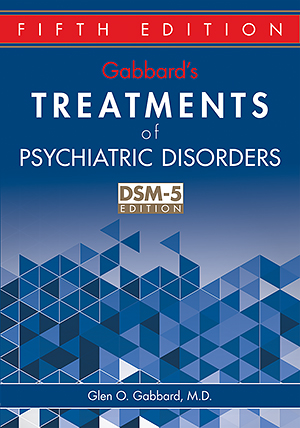Sections
Excerpt
The American Psychiatric Association (APA) updated their practice guideline for major depressive disorder (MDD) in November 2010. The work group underscored the importance of nonpharmacological aspects of successful treatment that are independent of the actual therapy chosen, including patient-practitioner (the “treatment” or “therapeutic”) alliance and use of standardized depression measures such as the clinician-administered Montgomery-Åsberg Depression Rating Scale (MADRS; Montgomery and Åsberg 1979) and the self-reported Beck Depression Inventory (BDI; Beck et al. 1961) or Quick Inventory of Depressive Symptomatology–Self Report (QIDS-SR; Trivedi et al. 2004) to systematically monitor treatment response over time. After these parameters are established, standard treatment options for unipolar depression include antidepressant medications and/or evidence-based psychotherapy. The choice between medication or talk therapy is typically based on patient preference and/or psychiatrist/therapist orientation, because there is a dearth of personalized treatment strategies based on etiopathogenesis of illness. Development of such strategies is certainly a critical future goal, which will be elaborated on later in this chapter.
Access content
To read the fulltext, please use one of the options below to sign in or purchase access.- Personal login
- Institutional Login
- Sign in via OpenAthens
- Register for access
-
Please login/register if you wish to pair your device and check access availability.
Not a subscriber?
PsychiatryOnline subscription options offer access to the DSM-5 library, books, journals, CME, and patient resources. This all-in-one virtual library provides psychiatrists and mental health professionals with key resources for diagnosis, treatment, research, and professional development.
Need more help? PsychiatryOnline Customer Service may be reached by emailing [email protected] or by calling 800-368-5777 (in the U.S.) or 703-907-7322 (outside the U.S.).



